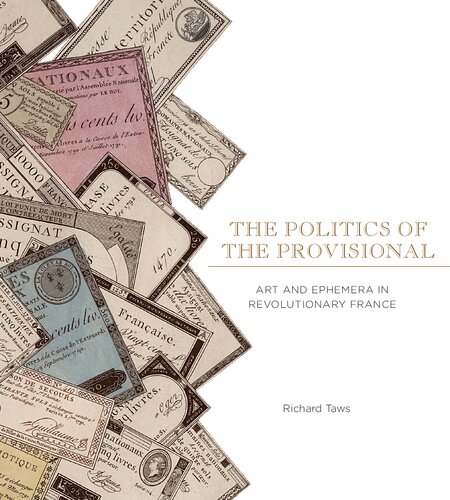Product desciption
Politics Of The Provisional Art And Ephemera In Revolutionary France Richard Taws by Richard Taws 9780271054186, 0271054182 instant download after payment.
“The Politics of the Provisional engages with several historiographies within the sprawling subject of the French Revolution. It is very difficult to find a really original take on just about any aspect of the Revolution, but Richard Taws does. This is quite a feat.”
—Katherine Crawford, Vanderbilt University
“What Richard Taws offers is a series of concepts with which to frame French Revolutionary visual culture: to the notion of the provisional, he adds currency, identity, circulation, temporal rupture, media transgression, and mimetic dissimulation. Not only are the arguments and formal analyses moored to original material, but they are so cogently structured that it is hard to see them as anything but convincing. Art historians have much to learn from the approach Taws takes. He renders an entire realm of images and objects foundational to our understanding of the production, status, and meaning of representation in the 1790s—and, in so doing, he develops models for thinking about the relation of the visual to political upheaval more generally. This is one of the most sophisticated accounts of material culture I have read.”
—Erika Naginski, Harvard University
“This brilliant and profoundly original book makes us see the French Revolution with new eyes. Richard Taws is emerging as one of the major new voices in writing about the French Revolution and visual politics in general.”
—Lynn Hunt, University of California, Los Angeles
In revolutionary France the life of things could not be assured. War, shortage of materials, and frequent changes in political authority meant that few large-scale artworks or permanent monuments to the Revolution’s memory were completed. On the contrary, visual practice in revolutionary France was characterized by the production and circulation of a range of transitional, provisional, ephemeral, and half-made images and objects, from printed paper money, passports, and almanacs to temporary festival installations and relics of the demolished Bastille. Addressing this mass of images conventionally ignored in art history, The Politics of the Provisional contends that they were at the heart of debates on the nature of political authenticity and historical memory during the French Revolution. Thinking about material durability, this book suggests, was one of the key ways in which revolutionaries conceptualized duration, and it was crucial to how they imagined the Revolution’s transformative role in history.
The Politics of the Provisional is the first book in the Art History Publication Initiative (AHPI), a collaborative grant from the Andrew W. Mellon Foundation. Thanks to the AHPI grant, this book will be available in the following e-book editions: Kindle, Nook Study, Google Editions, ebrary, EBSCO, Project MUSE, and JSTOR.
Richard Taws is Lecturer in the History of Art Department, University College London.


